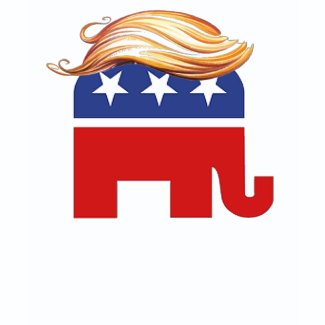
A Changing America? Obama’s Challenging Foreign Policy
President Obama sat in a plush chair in Saudi Arabia’s Erga Palace and met with King Salman in the latter half of April. It is said that relations between the two are growing increasingly strained, as King Salman did not greet the president at the airport.
Seated behind the president were Secretary of State John Kerry, who participated in protests against the Vietnam War, and Ambassador Susan E. Rice, who is said to be more of a scholar than a diplomat and who wore an eye-piercingly red suit. The foreign policy of Obama’s second term in office has been constructed and enacted by the president and these two advisers. It is likely that these three are disliked throughout the world.
A Change From Past Methods
America’s foreign policy is undoubtedly different from what it has been in the past.
Although Obama seemed to pledge retaliation should the Assad regime cross the line of chemical weapons usage, there was no military intervention when President Bashar Assad’s government was suspected of using poison gas in Syria. This noticeably increased the belief that Obama’s policy is weak. However, although there was strong support within the government for aerial bombing, the general public was against military intervention.
Obama has even stated his belief that “America is not the world’s policeman.” That said, international political leaders and scholars have noted that U.S. forces are so much a part of international security that their loss would also mean a loss of international order.
This is certainly true for Russia and China, where the threat of U.S. military action is relied upon to keep the two countries in check. Whether in Ukraine or the South China Sea, America’s looming presence is what narrowly preserves the balance in tense situations. The might of America is still very much needed in the world.
A Solution More Favorable Than Military Force
However, the world is also gradually making some changes.
While the 20th century seems to have been consumed by war, the 21st century seems averse to it. Blood-shedding wars have turned into economic competitions waged with money. And although the boundaries of the nation state have not broken down, despite the recent globalization of many different fields, we have exited a time in which people did the state’s bidding and stepped into one in which the state must listen to its people.
America’s military and the defense industry that supplies it are the best in the world. It might even be said that wars are waged because these weapons are being produced.
President Obama Is Frequently Compared to President Eisenhower
Eisenhower was a notable figure during World War II and commanded battles like the Battle of Normandy as the Supreme Commander Allied Expeditionary Force. After the war, he became the Republican Party’s presidential candidate. Once inaugurated, he ended the Korean War and maintained a hard line against Communism. However, in January 1960 at the age of 70 he made the following farewell address to the public:
“Until the latest of our world conflicts, the United States had no armaments industry. American makers of plowshares could, with time and as required, make swords as well. But now we can no longer risk emergency improvisation of national defense; we have been compelled to create a permanent armaments industry of vast proportions... Yet we must not fail to comprehend its grave implications… We must never let the weight of this combination endanger our liberties or democratic processes.”
Considering the present economic recession, continued inequalities, and crippling military expenditures, it is not strange that Obama brings to mind Eisenhower’s pragmatic prediction from half a century ago. Above all, Obama is a president who was elected on the promise he made to withdraw troops from Afghanistan and Iraq. He is a president who was selected not by the elite, but by the people.
The nuclear deal with Iran involves Europe, China and Russia; in other words, it is an international agreement. This deal, however, has incited anger in Israel and Saudi Arabia. The America of the past, after all, was different. There is now a sense of novelty and challenge here, a suggestion that there is a better solution than using isolation to increase strain. In regard to being able to expect a better future, this policy might be thought of as weak, since the restoration of diplomatic relations with Cuba is a victory for diplomacy rather than the military. America, however, is bloodlessly restoring relations with Central and South America, which are important to the defense of the U.S. from Russia and China.
Forward-looking Visit to Hiroshima
As for Japan, the U.S. is considering a visit to Hiroshima where the nuclear bomb was dropped. Ahead of this possible visit, Secretary of State John Kerry paid a visit to the Hiroshima Peace Dome alongside other foreign ministers. This visit could be considered an effort at preventing such tragedies from happening in the future.
Obama is in the process of building the legacy that he will leave after his term as president is complete. When we consider Iran, Cuba and even this possible visit to Hiroshima, we can see that Obama’s legacy may be different from that of past presidents. It may change the very foundations of American foreign policy.
Since we cannot see the results of this foreign policy yet, it is still too soon to judge its effectiveness. There is no doubt, however, that this will be a challenge decided by world history.


